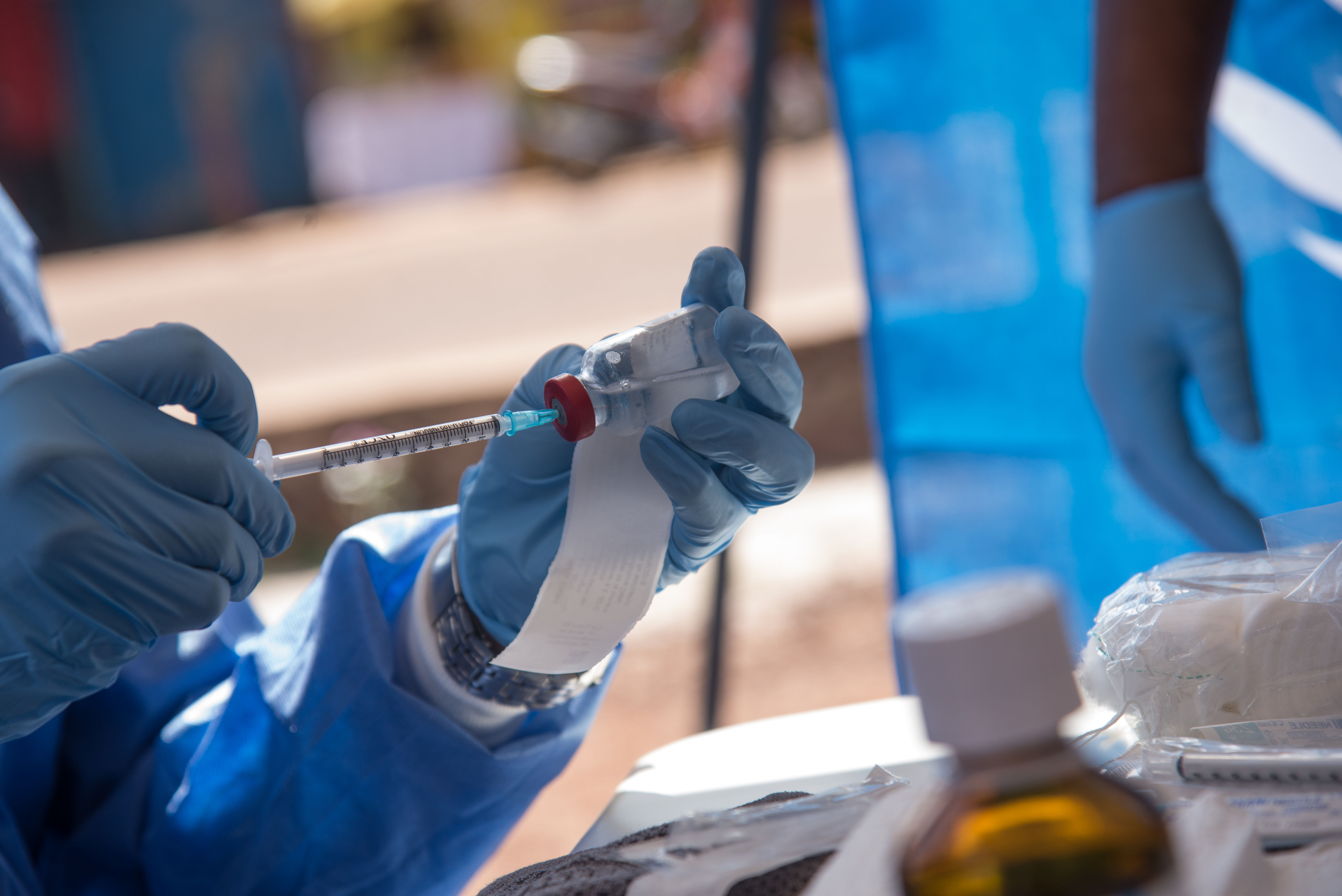
Uganda’s mandatory measles immunisation stirs debate on social media

Uganda started a massive immunisation campaign that will see about 18 million children vaccinated against measles, rubella and polio country wide.
This followed a recent measles out break in 60 districts that left hundreds of children hospitalised.
Having faced resistance from some parents in previous immunisation campaigns, the Ministry of Health started the vaccination in schools where every child was immunised without any choice of opting out.
While addressing a press conference in the capital Kampala, Health minister Dr. Jane Ruth Aceng, said “In Uganda, immunisation is mandatory. If you can prove to us that your child was vaccinated against measles and Rubella and you have a card, then we shall know that your child will not be a threat to our children.”
That statement gave health workers authority to go past any form of resistance from parents and religious leaders who were against the immunisation exercise.
Ugandans rushed to social media spaces to express divergent views on the government’s “forced” immunisation campaign.
Nabbi Sentamu Sewandagi Atiku posted on Facebook asking “Can something good be forced onto people? We willingly take our children for immunisation from day one until they are 11/2 years. Even pregnant mothers receive TT (Tetanus Toxoid)….Why is this a forced immunization if it is for our own good?”
Simon Kaggwa Njala, a journalist and talk show host on NBS TV, questioned the legal authority that government based on to immunise the children.
He asked: “How come some parents have had a choice on whether to consent to the immunisation of their children while others only got to know after their kids had forcefully gotten jabs? Under which law is mandatory vaccinations?”
There were also questions about the quality of the vaccines especially following previous allegations that government had used expired hepatitis B vaccines.
Government denied these allegations as untrue.
Carlos George Ombonya, a social media user said: “I hope this time around you have tested and cross checked the vaccination medicines are not expired. We must be assured of efficiency and cautions or precautions.”
Amidst resistance from several parents, others were in full support of the mandatory vaccination exercise.
Lydia Namubiru, a parent and journalist posted on her Facebook page in support of the campaign.
“Oh my God! parents in Kampala are resisting immunisation of their children but still sending them to school with the rest of our kids. If my kids dies of an immunisable disease just because some parent wouldn’t immunise their children, I will hunt down that parent. …..At some point, you have to think beyond yourselves,” she posted.
There is anecdotal evidence that shows that vaccination refusal has increased in Uganda in the last decade with substantial number of parents expressing concerns about the safety of vaccines.
While health officials maintain that routine childhood vaccines are safe and effective, many parents still hesitate to have them administered to their children.
WHO is warning that with such growing resistance from parents, managing disease out breaks like measles and polio could be potentially difficult.
The country representative for the WHO Yonas Tegegn said: “We may not be able to prevent children from contracting measles but we can prevent an out break when we reach 95% coverage of the population.”
The new measles surveillance data from the WHO released in April 2019 show there was a dramatic 700% increase in measles cases with the Democratic Republic of Congo and Madagascar the most hit at the beginning of the year.
Vaccine hesitance is slowly growing in Africa.
The Human Papiloma Virus Vaccine (HPV) vaccination campaign in Kenya recently received similar resistance from local leaders.
Kenya’s president Uhuru Kenyatta intervened requesting Kenyans to embrace the cervical cancer vaccination and “not to fight science.”
Globally, 13% of parents decide to forgo vaccinating their children
The post Uganda’s mandatory measles immunisation stirs debate on social media appeared first on Nile Post.
0 Response to "Uganda’s mandatory measles immunisation stirs debate on social media"
Post a Comment